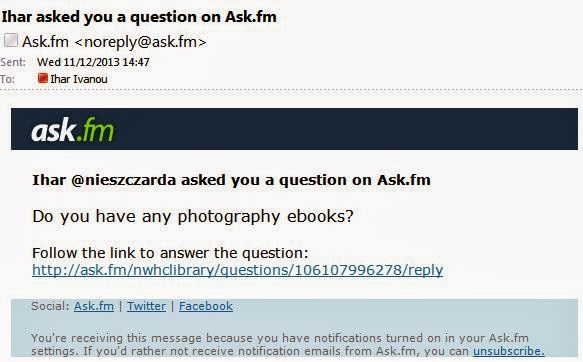This is my article for the CoLRiC Newsletter, issue 59 (December 2013)
 Last summer, a suicide of a 14-year old girl took place in
Leicestershire; apparently, it was provoked by cyberbullying. Following the
tragic event, tabloids demanded from the government to censor Ask.fm, a Latvia-based
website extremely popular among teenagers. ‘Our children must be protected from
irresponsible adults’, the message was. Among that storm, very few sober and
reasonable voices were heard: the best
protection is education.
Last summer, a suicide of a 14-year old girl took place in
Leicestershire; apparently, it was provoked by cyberbullying. Following the
tragic event, tabloids demanded from the government to censor Ask.fm, a Latvia-based
website extremely popular among teenagers. ‘Our children must be protected from
irresponsible adults’, the message was. Among that storm, very few sober and
reasonable voices were heard: the best
protection is education.
By no means, this a controversial thought – to educate, not to ban. In 2010, Ofsted published a report, The Safe Use of New Technologies (Ofsted, 2010), based on research about schools’ engagement with the internet, emerging technologies and safeguarding. One of the key findings of that report sounds very much up to date now: Pupils in the schools that had ‘managed’ systems had better knowledge and understanding of how to stay safe than those in schools with ‘locked down’ systems. Pupils were more vulnerable overall when schools used locked down systems because they were not given enough opportunities to learn how to assess and manage risk for themselves.
 Last summer, a suicide of a 14-year old girl took place in
Leicestershire; apparently, it was provoked by cyberbullying. Following the
tragic event, tabloids demanded from the government to censor Ask.fm, a Latvia-based
website extremely popular among teenagers. ‘Our children must be protected from
irresponsible adults’, the message was. Among that storm, very few sober and
reasonable voices were heard: the best
protection is education.
Last summer, a suicide of a 14-year old girl took place in
Leicestershire; apparently, it was provoked by cyberbullying. Following the
tragic event, tabloids demanded from the government to censor Ask.fm, a Latvia-based
website extremely popular among teenagers. ‘Our children must be protected from
irresponsible adults’, the message was. Among that storm, very few sober and
reasonable voices were heard: the best
protection is education.By no means, this a controversial thought – to educate, not to ban. In 2010, Ofsted published a report, The Safe Use of New Technologies (Ofsted, 2010), based on research about schools’ engagement with the internet, emerging technologies and safeguarding. One of the key findings of that report sounds very much up to date now: Pupils in the schools that had ‘managed’ systems had better knowledge and understanding of how to stay safe than those in schools with ‘locked down’ systems. Pupils were more vulnerable overall when schools used locked down systems because they were not given enough opportunities to learn how to assess and manage risk for themselves.
